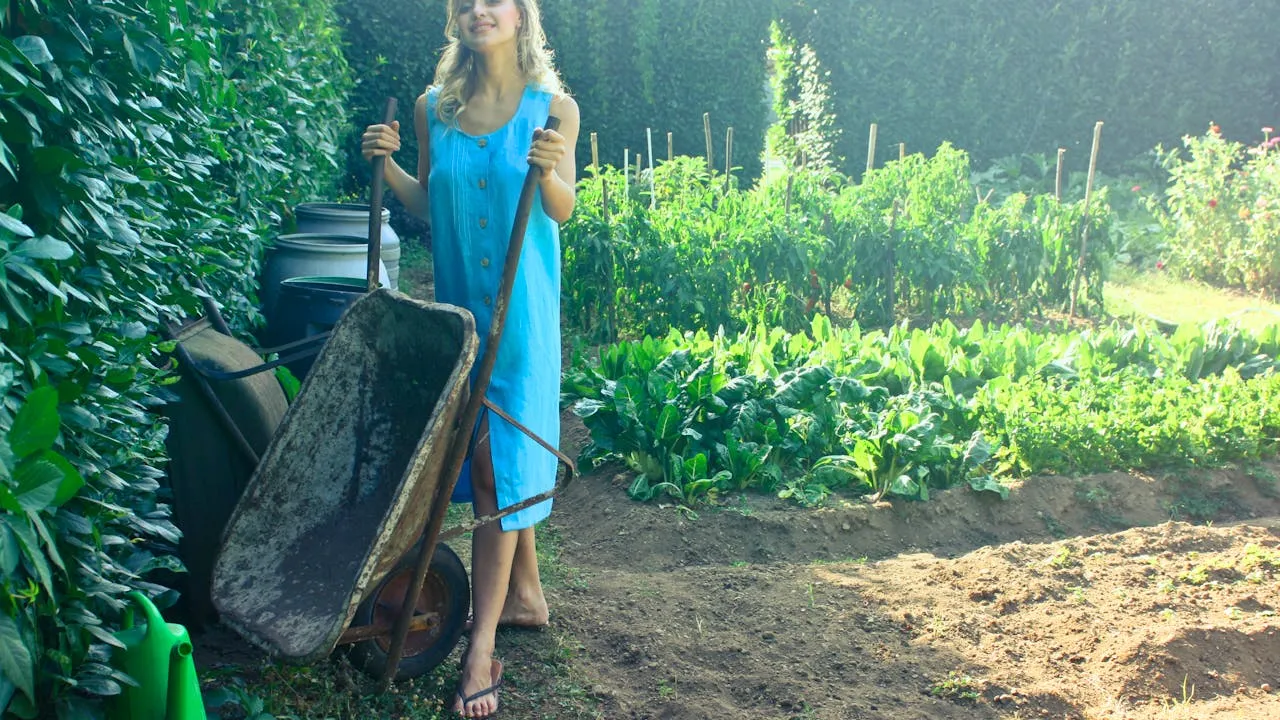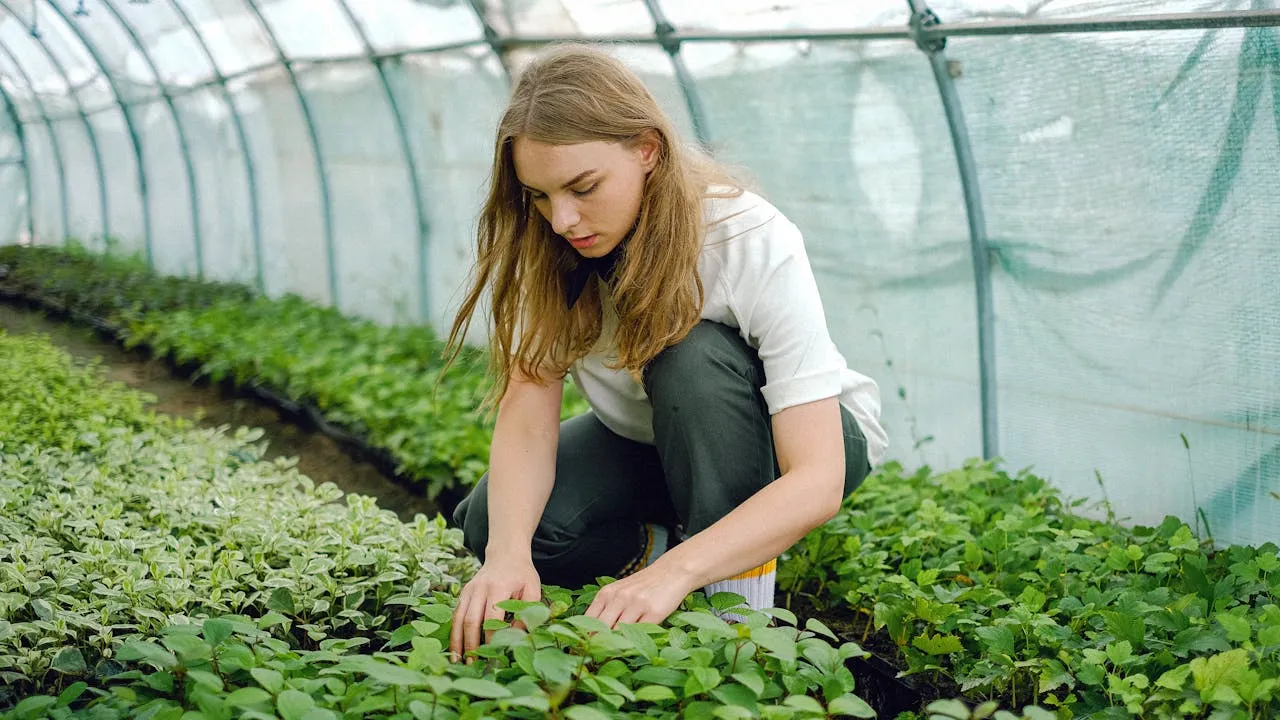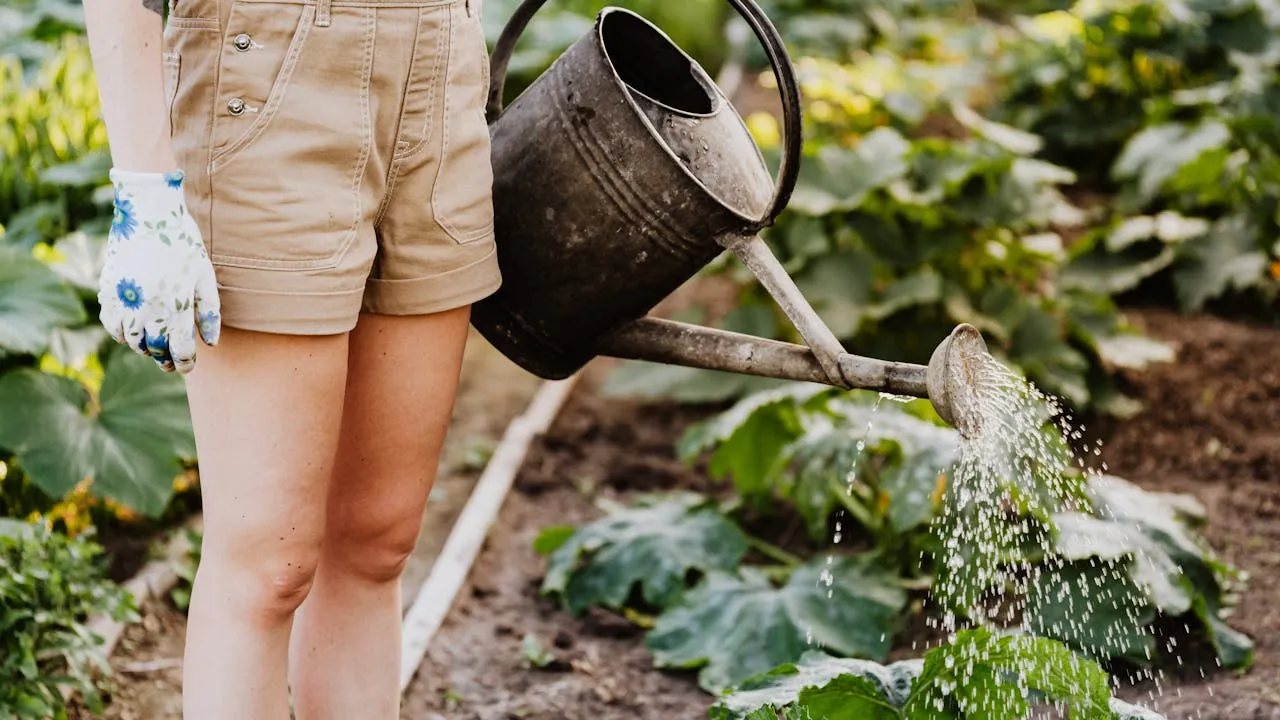The ancient art of gardening goes far beyond the simple cultivation of plants. It’s a mind-body-spirit activity that benefits the whole person. The health benefits of gardening are becoming increasingly recognized in today’s fast-paced world, not only for its aesthetic and culinary rewards but also for its significant impact on overall health and well-being. Gardening activities offer a unique combination of mental stimulation, physical exercise, and emotional fulfilment. The planting, weeding, and collecting demonstration can improve cardiovascular well-being, muscle tone, and lift adaptability. The mental involvement required to plan and care for a garden improves mindfulness and cognitive function, reducing stress and anxiety.
Essential Health Benefits Of Gardening

Read Also: Chia Seeds vs Flax Seeds: Which is Healthier and How to Incorporate Them into Your Daily Diet
As gardening fosters a sense of accomplishment and a connection to nature, which can elevate mood and improve self-esteem, emotional well-being is also significantly enhanced. The health benefits of gardening include providing access to organic, fresh produce, which can improve nutrition. Homegrown vegetables, fruits, and herbs can improve dietary habits and health outcomes. Taking care of plants can also give people with mental health problems and the elderly a sense of purpose and routine. In community gardens, social interactions frequently flourish, reducing feelings of isolation and a sense of community. Gardening is, in essence, a multifaceted activity that encourages a healthier lifestyle through improved nutrition, mental relaxation, and physical activity.
1. Relationship with Nature
Investing energy in nature has been displayed to have various medical advantages, including diminished feelings of anxiety, further developed temperament, and upgraded mental clearness. The health benefits of gardening are that it allows people to immerse themselves in the natural world and helps them feel connected to and in harmony with the environment. A relationship with nature can help alleviate stress and anxiety by encouraging mindfulness and awareness of the present moment. Vitamin D levels, necessary for bone health and immune function, can also be increased by being outside in natural light, improving sleep patterns.

2. Social Connection and Community Building
The health benefits of Gardening can be a fun way to build relationships and meet new people.. People can get together, share their knowledge, and work on projects at community gardens and gardening clubs. Particularly for the elderly and those who live alone, these social interactions can help alleviate loneliness and isolation. Cooperating in a nursery setting can likewise advance a feeling of having a place and local area soul. Sharing the results of one’s labour, such as produce grown at home, can also foster a supportive community of friends and neighbours.
3. Emotional Health
The health benefits of Gardening give you a sense of purpose and accomplishment. Caring for plants can bring a deep sense of contentment and fulfilment to one’s life. This pride can help confidence and certainty. In addition, taking care of plants can alleviate loneliness and isolation by providing emotional support and a sense of companionship. Gardening’s responsibility and routine can also provide individuals with a structured activity that adds meaning and joy to their day-to-day lives.

4. Cognitive Ability and Mental Health
It has been shown that gardening has significant benefits for mental health. Plant care can be incredibly meditative and calming, lowering levels of stress and anxiety. Greenery and plants have a calming effect on the mind, relieving depression-related symptoms and elevating mood. Moreover, cultivating requires critical thinking abilities, arranging, and persistence, which can improve mental capability. The health benefits of Gardening can help older people keep their minds sharp and prevent dementia and other cognitive declines that come with age.
5. Physical Activity
The health benefits of gardening are great low- to moderate-intensity exercise. Digging, planting, weeding, and watering are just a few activities that can help you lose weight, improve your balance, and strengthen your muscles. Raking and hoeing, two of the repetitive tasks in gardening, are beneficial for strengthening the back, legs, and arms. Ordinary actual work from cultivating can assist with lessening the risk of constant infections like heftiness, coronary illness, diabetes, and hypertension. Besides, outside and participating in actual work can improve cardiovascular well-being by expanding pulse and dissemination.
6. Nutritional Enhancement
Growing your herbs, fruits, and vegetables gives you access to organic, fresh produce, which can help you eat better. Produce grown at home often has more nutrients and flavour than produce bought in a store. Gardening encourages people to eat more fruits and vegetables, increasing their essential vitamins, minerals, and antioxidants intake. This improved nutrition can boost the immune system, improve overall health and reduce the risk of developing chronic diseases.

The health benefits of gardening make it a good activity for people who want to improve their health. Participating in cultivating gives significant actual exercise, advancing cardiovascular well-being, muscle strength, and adaptability. Intellectually, it offers a refreshing departure, diminishing pressure, tension, and wretchedness while helping mental capability and care. Emotionally, gardening boosts self-esteem and reduces feelings of loneliness by instilling a sense of accomplishment, purpose, and connection. In terms of nutrition, it ensures access to organic, fresh produce and encourages healthier eating habits. Spending time in nature connects people to nature, improving mood and mental clarity.
To get more of our exclusive content on Health Care and Lifestyle. Follow us on YouTube and Instagram.






